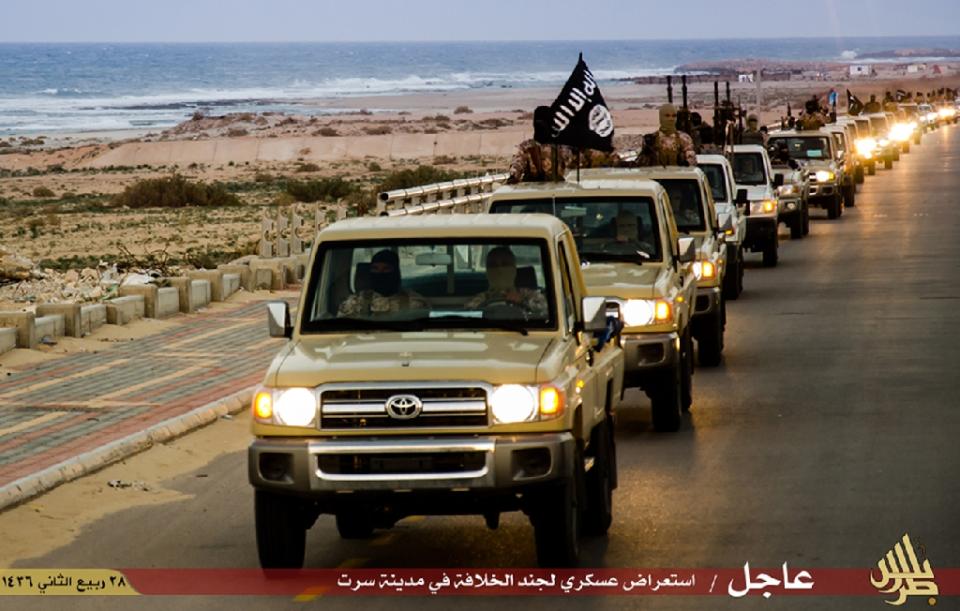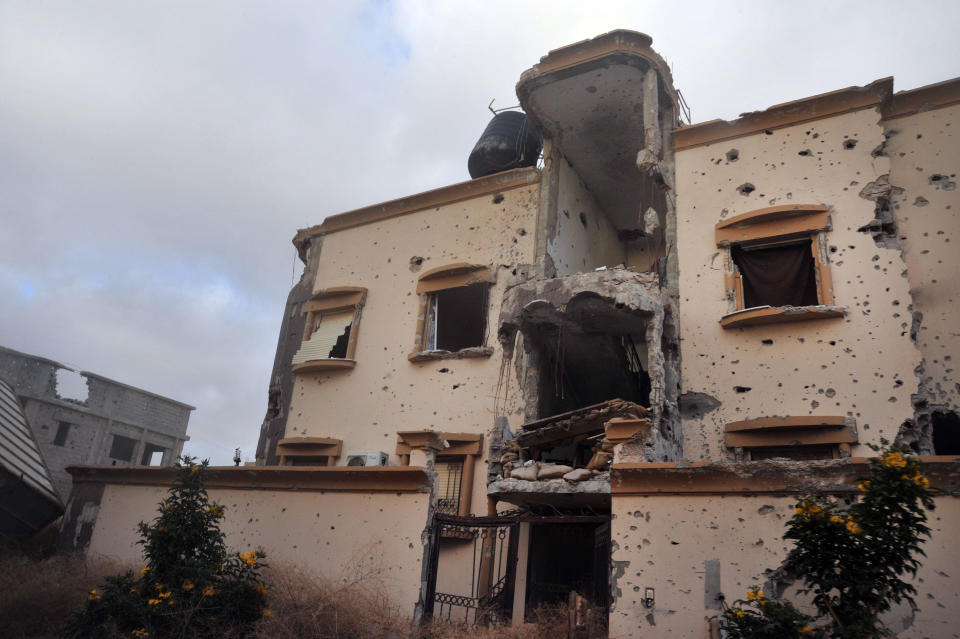The war against ISIS: What’s changed for the terrorists
Journalist and terrorism expert Graeme Wood spoke to Yahoo News about how the Islamic State’s losses on the battlefield have affected their mission.
The tragedy in Brussels on Tuesday intensified the ongoing debate over whether President Obama’s counterterrorism strategies to defeat ISIS have been working.
During a news conference in Argentina on Wednesday, Obama addressed the importance of defeating ISIS.
“I understand why this is the top priority of the American people. And I want them to understand this is my top priority as well,” Obama said. “But we are approaching this in a way that has a chance of working, and it will work. And we’re not going to do things that are counterproductive simply because it’s political season. We’re going to be steady. We’re going to be resolute, and ultimately we’re going to be successful.”
Graeme Wood, a contributing editor at the Atlantic and the Edward R. Murrow Press Fellow at the Council on Foreign Relations, is an expert on ISIS whose article “What ISIS Really Wants” from last year shed light on the terrorist group’s beliefs as an agent of the apocalypse.
He spoke to Yahoo News on Wednesday about what’s changed for ISIS over the past year and what this means for U.S. efforts to stop the group’s reign of chaos and violence.

The U.S. campaign against ISIS so far
Wood says that the campaign against ISIS is going far better than could have reasonably been expected a year ago. It’s remarkable, he said, that this has been the case without the heavy hand of U.S. involvement.
“If you looked at ISIS’ plans for expansion and conquest, you would have seen a list of places that were very much up for grabs and battles that they were expected to win,” Wood said in an interview with Yahoo News. “Most of that list of battles are a list of ISIS defeats over the last year. They had some very serious setbacks tactically.”
It’s important for Americans to understand that merely degrading or destroying ISIS would not mean defeating the group, he said. As a mass movement, they are going to have foreigners in many different locations willing to support them in a violent manner, regardless of whether they are losing battles in Syria.
A major concern prevented ground warfare
The U.S. and its allies cannot simply defeat ISIS on the battlefield, according to Wood, echoing what the White House has insisted. A plan is needed for what comes next, which is primarily why Obama has not deployed boots on the ground, as the more bellicose Republican presidential candidates want.
Wood says the U.S. and its limited coalition of allies can gain control of terrorist strongholds like Raqqa or Mosul if officials are willing to sacrifice more American lives, because there is no question that the U.S. is more militarily capable than ISIS.
According to Wood, several things will happen if this course of action is taken: 1) ISIS will be driven underground and turned into a beleaguered guerilla organization; 2) the U.S. would inherit a volatile, politically untenable situation; and 3) residents would demand some sort of rule of law that they deem credible.
“The United States can’t do that. We’re not very good at it. The 2000s in Iraq showed us how bad at it we are,” Wood said. “We can’t expect that we’re going to be better than we were in 2011. … The only way to win it is to make sure there’s someone who can step in in our place and act as a government that the people there accept. That government entity does not exist.”

Why ISIS is targeting Europe
With more losses on the battlefield, ISIS could very well be lashing out at Europe even more than usual to signal strength and success to its adherents. The Islamic State group does not hide the fact that terrorist attacks against the West are presented as morale boosters.
“They want to show they are still the premiere terrorist organization. And one way to do that is to dominate a news cycle,” Wood said. “They even speak about attacks [on the West] in terms of morale. They talking about ‘warming the hearts of believers.’”
It’s important not to overstate this motivation, however, because the desire among jihadists to inflict violence on the West clearly far predates their recent defeats. But the group needs to achieve some “victories” in order to appear as a juggernaut.
Major changes to ISIS since last year
Wood says that the group's lost territory since this time last year — Kobani, Ramadi, Sinjar and likely more soon — has radically changed the way they can portray themselves.
“Formerly, they could say, ‘We’re unstoppable. We’re incredible.’ I’ve even had supporters of ISIS say to me, ‘Look, they have the favor of God himself. How else could they keep at bay the entire world that’s opposed to them?’” he said.
As for what they believe and what there goals are, that has not changed much. Wood said that ISIS members still talk incessantly about the importance of the caliphate, implementing their interpretation of Islamic law and helping to bring about the apocalypse.
He concluded: “Ideologically, the same. Practically, some fairly big differences.”
Related video:


